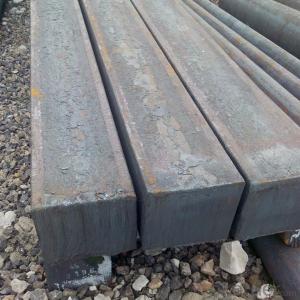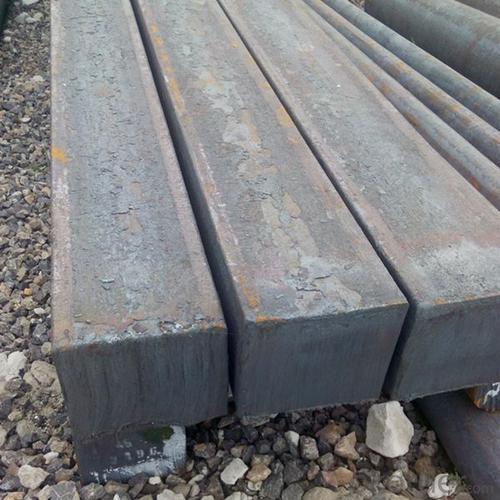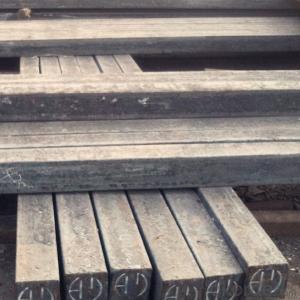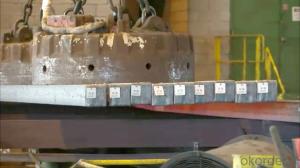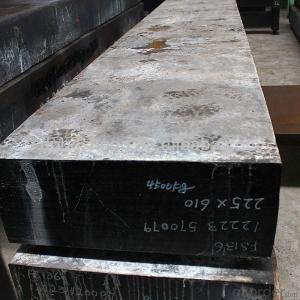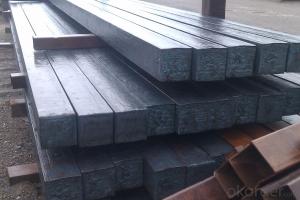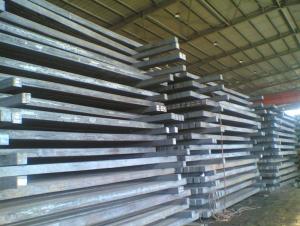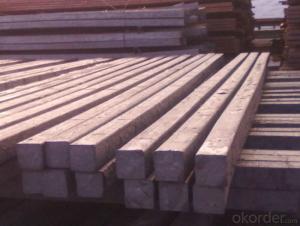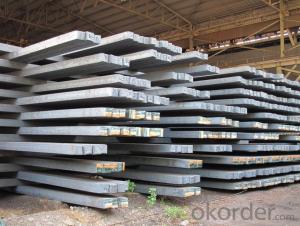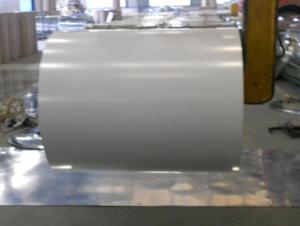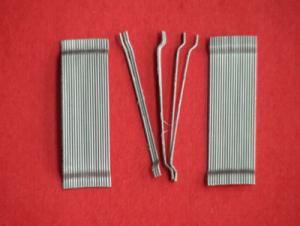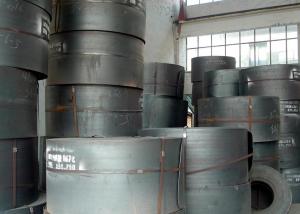Hot Rolled Steel Billet China Supplier Q235/3SP/5SP
- Loading Port:
- China main port
- Payment Terms:
- TT OR LC
- Min Order Qty:
- 1000 m.t.
- Supply Capability:
- 100000 m.t./month
OKorder Service Pledge
OKorder Financial Service
You Might Also Like
Specification
Product Description
Type | Steel billet / Square steel/ Steel square bar |
Standard grade | 3SP/PS, 5SP/PS, Q195, Q235, Q255, Q275, 20MnSi etc. |
MOQ | 1000 MT |
Technique | Hot rolled, Continuous casting and rolling |
Size | 50*50mm ~ 160*160mm |
Length | 3~12m |
Packing | Loose packing, in bundle |
Payment terms | T/T, L/C at sight, Usance L/C |
Trade terms | EXW, FOB, CFR, CIF |
Trans terms | FIO, FILO, FLT |
Inspection | Third party inspection accepted |
Delivery time | 15-30 days, according to the quantity |
Applications | carbon structural steel, wire rod, rod, deformed bars, profile steel, machine parts, and steel moulds etc . |
Note | Customized service is available (for sizes,length and chemical components etc.). |
2.Steel Grade:
Steel Grade | C % | Mn % | Si % | S % | P % |
Q195 | 0.06-0.12 | 0.25-0.50 | 0.30 Max | 0.04 Max. | 0.04 Max. |
Q235 | 0.12-0.22 | 0.30-0.60 | 0.30 Max. | 0.04 Max. | 0.04 Max. |
Q255 | 0.18-0.28 | 0.40-0.70 | 0.30 Max. | 0.045 Max. | 0.050 Max. |
Q275 | 0.27-0.38 | 0.50-0.80 | 0.30 Max. | 0.045 Max. | 0.045 Max. |
3SP | 0.14-0.22 | 0.40-0.85 | 0.15-0.30 | 0.050 Max. | 0.040 Max. |
5SP | 0.28-0.37 | 0.50-1.00 | 0.15-0.30 | 0.050 Max. | 0.040 Max. |
20MnSi | 0.17-0.25 | 1.00-1.60 | 0.40-0.80 | 0.050 Max. | 0.050 Max. |
3.Production Process
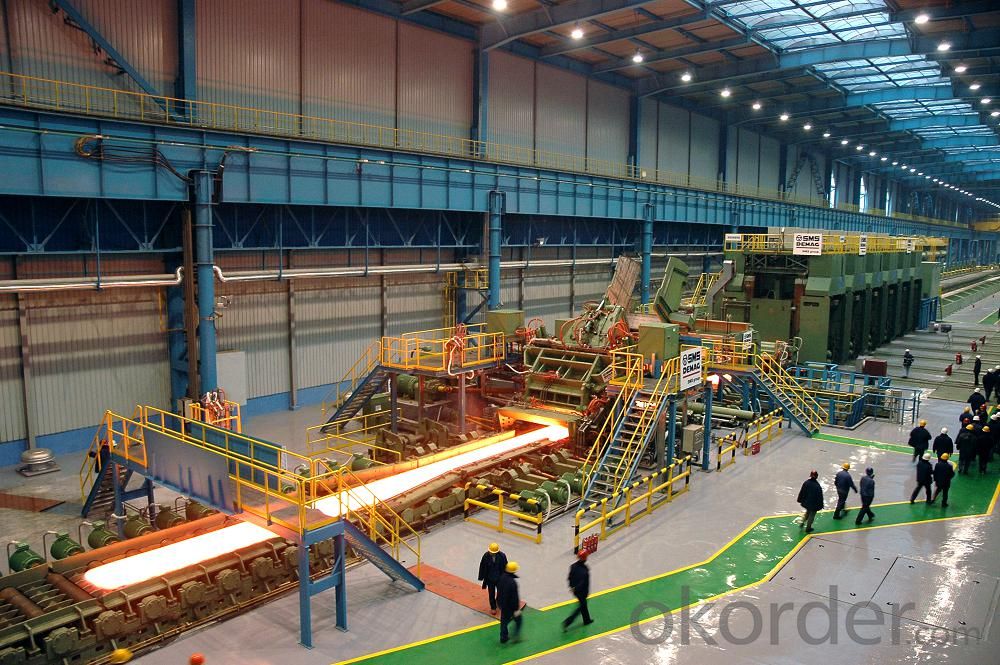
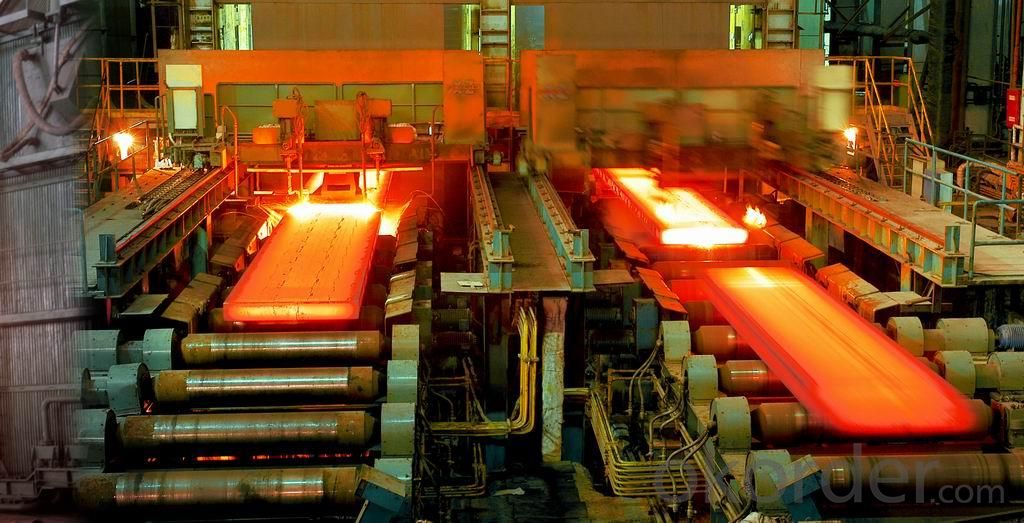
FAQ:
Q: Can I get sample and how long will it take?
A:Yes. We can supply sample. And you need to pay for courier.
Q: What's the MOQ?
A: Our MOQ is 25mt.
Q: What's the delivery time?
A: It will take about 30 days after TT or L/C.
Q: What is the payment terms?
A: T/T, L/C at sight
Q: How does your factory carry out quality control?
A: We attach great importance to quality control.Every part of our products has its own QC.
Q: What certificate do you have?
A: We have SGS, ISO9001 etc. Also we can apply any certificate if you need if the qty is OK.
- Q: How is steel tubing used in the manufacturing of automobile exhaust systems?
- Steel tubing is used in the manufacturing of automobile exhaust systems because it offers strength, durability, and resistance to high temperatures and corrosion. The tubing is shaped and welded to form the necessary paths for exhaust gases to flow from the engine to the tailpipe, ensuring efficient and safe removal of harmful emissions.
- Q: How is steel rebar welded for reinforcement in concrete structures?
- Steel rebar is welded for reinforcement in concrete structures using a process called electric arc welding. This involves creating an electric arc between the rebar and a welding electrode, which generates intense heat to melt the metal. The molten metal is then allowed to cool and solidify, forming a strong bond between the rebar and other steel components. This welding technique ensures the rebar stays firmly in place, enhancing the structural integrity and durability of the concrete construction.
- Q: What are the different types of steel fasteners and their uses in the marine industry?
- In the marine industry, there are several types of steel fasteners commonly used. These include stainless steel bolts, screws, nuts, washers, and rivets. Stainless steel fasteners are preferred in this industry due to their excellent corrosion resistance properties. Bolts are typically used in heavy-duty applications, such as securing large components or structural elements. Screws are commonly used for fastening smaller components, while nuts and washers are used in conjunction with bolts to provide additional stability and prevent loosening. Rivets are another type of fastener used in marine applications, particularly for joining thin sheets of metal. They provide a secure and permanent connection, ideal for areas with high vibration or where welding may not be feasible. Overall, these steel fasteners play a vital role in the marine industry by ensuring the structural integrity, safety, and longevity of various components and structures, even in harsh saltwater environments.
- Q: How is steel rebar threaded for connecting reinforcement bars in construction?
- Steel rebar is threaded for connecting reinforcement bars in construction using a process called threading. This involves cutting precise threads onto the end of the rebar using a specialized machine. The threaded end of one rebar is then inserted into a coupler, which is a device designed to provide a secure connection. The other end of the coupler is threaded as well, and a second rebar is inserted and tightened with a wrench. This threaded connection ensures a strong and reliable bond between the reinforcement bars, enhancing the overall structural integrity of the construction project.
- Q: What are the common uses of steel in the defense industry?
- Steel is commonly used in the defense industry for various purposes, including the production of military vehicles, aircraft carriers, submarines, and tanks. It is also utilized in the construction of bulletproof vests, helmets, and other protective gear. Additionally, steel is used in the manufacturing of weapons, such as firearms, artillery, and missiles, due to its strength and durability.
- Q: How is steel pipe coated for corrosion resistance?
- Steel pipe can be coated for corrosion resistance through various methods such as galvanization, epoxy coating, or fusion-bonded epoxy coating. Galvanization involves applying a layer of zinc to the steel surface, forming a protective barrier against corrosion. Epoxy coating involves applying a layer of epoxy resin to the pipe surface, providing a durable barrier against corrosion. Fusion-bonded epoxy coating involves applying a powder coating to the heated pipe surface, which then melts and fuses to form a corrosion-resistant layer. These coating methods help protect steel pipes from the damaging effects of corrosion, extending their lifespan and maintaining their structural integrity.
- Q: What are the different types of steel forgings and their uses?
- There are several types of steel forgings, each with its own unique properties and uses. Some common types include open-die forgings, closed-die forgings, and seamless rolled ring forgings. Open-die forgings are used for large and complex parts, such as turbine shafts and pressure vessels. Closed-die forgings are ideal for smaller and intricate components like automotive parts and hand tools. Seamless rolled ring forgings are commonly used in applications requiring high strength and durability, such as gears, bearings, and flanges. Overall, steel forgings offer superior strength, reliability, and resistance to wear, making them essential in various industries including aerospace, automotive, and oil and gas.
- Q: How is steel used in the construction of railway bridges?
- Steel is commonly used in the construction of railway bridges due to its high strength and durability. It is used to create the structural framework and support systems of the bridge, including the main beams, columns, and trusses. Steel's ability to withstand heavy loads and resist deformation makes it ideal for withstanding the weight of trains and ensuring the bridge remains stable and safe. Additionally, steel is easily fabricated, allowing for efficient construction and maintenance of railway bridges.
- Q: What are the different types of steel meshes and their applications?
- There are several types of steel meshes, each with its own unique characteristics and applications. 1. Welded Wire Mesh: This type of mesh consists of welded intersections, creating a rigid and strong structure. It is commonly used in construction projects for concrete reinforcement, fencing, and animal enclosures. 2. Expanded Metal Mesh: Made by cutting and stretching a metal sheet, this mesh has a diamond-shaped pattern. It is used in architectural applications, such as building facades, walkways, and filtration systems. 3. Woven Wire Mesh: Constructed through interlacing wires, this type of mesh is available in various patterns and sizes. It finds applications in industries like agriculture, mining, and filtration, where it is used for screening, sieving, and separating materials. 4. Perforated Metal Mesh: It is created by punching holes into a metal sheet, resulting in a pattern of regularly spaced openings. This mesh is widely used in industries like HVAC, automotive, and architecture for air ventilation, acoustic panels, and decorative purposes. 5. Wire Cloth: Composed of woven wires, wire cloth is used for a wide range of applications, including filtration, insect screening, and sieving. It is commonly found in industries such as food processing, chemical processing, and mining. These are just a few examples of steel meshes, and their applications are vast and diverse. The choice of mesh type depends on the specific requirements of the application, including strength, durability, aesthetics, and functionality.
- Q: How is steel tubing used in the manufacturing of heat exchangers?
- Steel tubing is commonly used in the manufacturing of heat exchangers due to its excellent heat conductivity, durability, and corrosion resistance. The tubing is often formed into intricate coil or finned shapes, allowing for maximum surface area contact with the heat transfer fluid. This facilitates efficient heat transfer between the hot and cold fluids, enabling effective temperature regulation in various industrial processes such as power generation, HVAC systems, and chemical manufacturing.
Send your message to us
Hot Rolled Steel Billet China Supplier Q235/3SP/5SP
- Loading Port:
- China main port
- Payment Terms:
- TT OR LC
- Min Order Qty:
- 1000 m.t.
- Supply Capability:
- 100000 m.t./month
OKorder Service Pledge
OKorder Financial Service
Similar products
Hot products
Hot Searches
Related keywords
